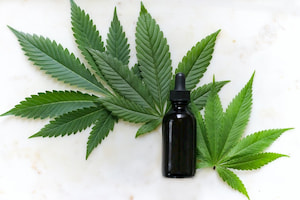
An effort to get two cannabis legalization measures on the ballot in Montana has succeeded. As a result, Montana voters will have the opportunity to weigh in this November on whether to legalize recreational marijuana use within state borders. What could this mean for cannabis companies who already operate medical marijuana dispensaries in Montana? Read on to learn more.
Campaign Secures Signatures to Get Cannabis Legalization on Montana Ballot
Medical cannabis is already legal in Montana, but now it appears that recreational cannabis could soon be legal in Montana as well. That’s because organizers of an effort to get cannabis legalization measures on the ballot in November 2020 were able to submit more than 130,000 signatures before the deadline.
The attempts to secure the required signatures in support of the Montana recreational cannabis legalization measures were made more difficult than usual because of the COVID-19 pandemic. Due to social distancing guidelines, organizers had to work incredibly hard just to reach potential supporters. The difficulties posed by coronavirus-related social distancing requirements were magnified by a Montana court ruling in April that prevented the campaign from using electronic signatures.
Ultimately, despite the impediments, campaigners behind the effort to put the cannabis legalization measures on the Montana ballot succeeded. New Approach Montana submitted more than 130,000 signatures in July, but the group had to wait for state and local officials to verify the signatures. Now the signatures have been verified by county officials. Once the Montana Secretary of State’s Office officially certifies the signatures, Montana residents will be allowed to vote on the adult-use marijuana legalization measures in the upcoming election.
Montana Residents Will Vote on Recreational Marijuana Legalization
Two complementary cannabis legalization initiatives will appear on the 2020 ballot:
- Statutory Initiative 190 (I-190): This ballot measure would create a system for regulating and taxing recreational cannabis sales in Montana. The statutory measure specifically calls for a 20% sales tax on marijuana sold at dispensaries.
- Constitutional Initiative 118 (CI-118): This ballot measure would amend the Montana Constitution by setting the legal age for marijuana consumption in Montana at 21. In other words, cannabis operators in Montana would be prohibited from selling recreational marijuana to anyone under the age of 21.
After it was announced that the signatures had been verified and that Montana voters will get to cast votes on whether to legalize cannabis for recreational use, New Approach Montana issued a statement online. The group noted the incredible odds that they overcame and emphasized that their work was not yet done: “Now, we are focused on building support with voters from across the state.” In an email sent to supporters, New Approach Montana added that the group faces a fundraising problem because so much money needed to be spent on the signature drive due to the added difficulties of obtaining a massive number of signatures during a pandemic. Although it is unclear at this time if the Montana ballot measures will be successful, the popularity of recreational cannabis measures nationwide continues to grow: polls show that the overwhelming majority of Americans support the legalization of marijuana for recreational use.
Additional Tax Revenues Expected from Cannabis Legalization in Montana
Dave Lewis, a former Montana state legislator, noted that the legalization of marijuana for recreational use could provide a huge boost to the Montana state budget. This would be particularly helpful for the state after the economic shutdown caused by COVID-19. According to Lewis, legalizing adult-use cannabis would add almost $50 million annually to the Montana budget. Similarly, the Marijuana Policy Project (MPP) estimated that the new laws in Montana would generate nearly $130 million in tax revenues for the state in just the first five (5) years.
Lewis added that these additional revenues are “vital to the future budget” of the state because projected tax revenues for 2020 and 2021 are expected to be significantly reduced from previous years, with many important services likely struggling to survive without state funding. These services in need of funding include veterans’ services, substance abuse treatment programs, and healthcare.
Contact Scythian for Information on Cannabis Real Estate Opportunities
Scythian Real Estate is a full-service real estate partner of the largest cannabis operators in the United States. Scythian provides cannabis companies with access to capital, resources, and expertise. To learn more, email Scythian Real Estate.
PLEASE NOTE THAT THIS BLOG IS NEITHER AN OFFER TO SELL NOR A SOLICITATION OF AN OFFER TO BUY SECURITIES IN SCYTHIAN REAL ESTATE FUND.







